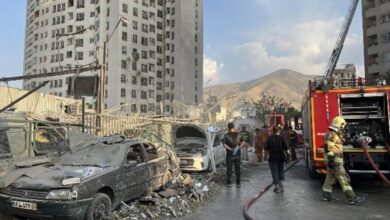Journalism and power: the ravages of a common alliance
Listen this article
The AMLO government publishes a list of 36 journalists who received money during the Peña Nieto government. But what is the effect of these 'businesses'?

There is a Mexican film called The Perfect Dictatorship (2014), directed by Luis Estrada, which describes this situation: a president, trying to look good with an American representative, tells him that Mexicans are better labor than the 'blacks' of there, a comment that is recorded and goes viral. For the attention to be diverted, the president asks his cronies of Televisión Mexicana (TV MX) to divert attention with other shocking news. Then, the news broadcast some suspicious videos of Governor Carmelo Vargas, who after seeing them is about to negotiate with the television channel. After this, the film becomes a series of assemblies -even of kidnapping- and diverting the attention to improve the image of Vargas to giving him the presidency.
Leer en español: Periodismo y poder: los estragos de una alianza
At the time, with its satirical and mocking tone, this film was a criticism of the collaborative scandals between the former president Peña Nieto (2012 – 2018) and the television network Televisa, which had received money to 'favor' him during the campaign in detriment of the image of its adversaries , as The Guardian published at that time. Today, after the publication in the newspaper Reforma of a list of 36 journalists who received silver during the previous term, the staging of the film acquires a greater reality.
You may be interested: Latin America: a hostile territory for press freedom
Divulga Presidencia contratos con periodistas del sexenio pasado https://t.co/ig1C21KXEI pic.twitter.com/wHnmCoFaRV
— Reforma Nacional (@reformanacional) 24 de mayo de 2019
El País recalls that this list aired after May 8, the National Institute of Access to Information (INAI) asked the Government to reveal the journalists and media that were hired for advertising purposes by Peña Nieto. AMLO, neither short nor lazy, said that the documents had been delivered on May 22. However, both INAI and AMLO deny filtering the documents.
In this regard, the latter stated during a morning conference the following Friday that "under the word of truth, we did not disclose the names of those who received or received these supports for informative works", which was followed by the denial of responsibility of the filtering by the INAI in a statement of the same day.
The list names each individual journalist who received some type of financing, whose total gave USD $ 1,081 million. Even so, as several journalists and critics of the list have pointed out, that money is only a fraction of the USD $ 3 million that the Peña Nieto government injected into the media. This, in addition to demonstrating a lack of transparency, has become the defense arm of the accused, who demand that the beneficiaries of the missing part, apparently the largest television networks, also be made known.
Beyond how a movie situation became reality in the last days in Mexico and how neither the government nor the journalists involved seem to give satisfactory answers, this scandal caused the population to question the relationship between Communication and power. When the alliances between the media and those who have power are perpetuating the second, they end up breaking the premises of informed journalism, whose main concern is to transmit the information to the citizenry.
Power and censorship
Likewise, this relationship not only contributes to the misinformation of people and the perpetuation of corrupt political dynamics but also to censorship within the same journalistic environment. For example, after the publication by The New York Times about the return of a military policy very similar to the one that gave rise to the 'falsos positivos' in Colombia, it was announced that Revista Semana had the same research documents since February. and had not published anything, as reported by La Silla Vacía.
Among the comments made on this, highlights the one Daniel Coronell published on his column in that same magazine. He said, in relation to the delay in the process of research by the magazine, that "Semana embarked on a longer path and, in my opinion, more related to political expediency than to the journalistic duty of publicizing a fact of undeniable public interest".
This put on the table the possibility that they were hiding information to agree to the Government of Iván Duque. Because of the above, Coronell asks, "Why did Semana not publish the guidelines of the commander of the Colombian Army who ordered his subordinates to double the casualties and captures, if those pieces of pieces of evidence were known by the magazine since February?"
It may interest you: Political persecution? New York Times journalist escaped Colombia after accusations
Felipe López, fundador de @RevistaSemana, me acaba de comunicar la decisión de la empresa de cancelar mi columna. Le agradezco a él, a @asantosrubino y especialmente a los lectores por estos años.
— Daniel Coronell (@DCoronell) 28 de mayo de 2019
Two days later, Coronell was informed that his column would be canceled. The criticisms didn't wait, as it was strangely coincident that just after what happened, the owners of Revista Semana opted to cancel the column that had been writing the renowned investigative journalist for 14 years. Even more puzzling was the fact that days ago, the editor of the magazine Alejandro Santos, gave the backing to the publication, stating that although a journalist spoke badly of his publishing house, he would not be censored in Semana.
LatinAmerican Post | Juan Gabriel Bocanegra
Translated from "Periodismo y poder: los estragos de una alianza"





